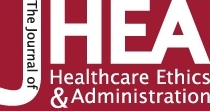Back Issue: Vol.7 No.4 (Fall 2021)
ISSN 2474-2309
Research Ethics
- Jonai Wabwire
Address correspondence to: Jonai Wabwire. School of Information Sciences, Department of Communication, Media and Information Sciences, Kisii University. Email: Wabwirejonai05@gmail.com, wabwirejonai05@kisiiuniversity.ac.ke
Pages: 1-11
Protecting traditional knowledge (TK) has been acknowledged in various discussions under the umbrella of a number of inter-governmental organizations that deal with biodiversity, the environment, indigenous peoples’ rights, human rights, among others. It has, however, been difficult to arrive at a consensus on the proper modality that can serve the needs and desires of Indigenous and Local Communities (ILCs) in their economic and cultural participation. The paper examines the requirements for the protection of TK and explores the modalities of TK protection at the international level for regulating the control of, access to and utilization of biodiversity associated with it. It is argued that any modality of TK protection should incorporate defensive and positive protection that address gaps in protecting TK. Protection of TK should, therefore, involve identifying different modalities, including those based on Intellectual Property, to fit the nature and use of TK in particular contexts. The paper makes a case for a shift in strategy for protecting TK by adopting pluralistic modalities that address the protection needs of ILCs, depending on the purpose and the context in which the knowledge is practiced.
